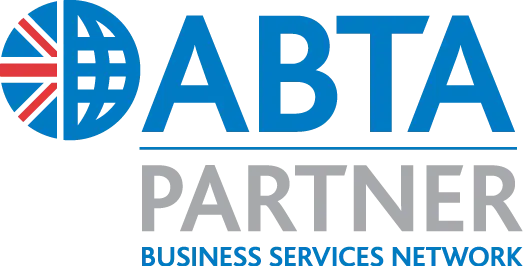
Driving in Slovenia.
Honest, simple and no hidden fees.
- Free Cancellation
- Excess Protection
- 24/7 Support
- Fair Fuel Policy
The active country.
Hiring a car is a great way to see Slovenia. There are many places to explore; you can visit the coast, the beautiful Slovenian countryside, and the lively city of Ljubljana and a hire car offers you the flexibility to get around and experience all of this.
Visitors driving in Slovenia should be aware that the driving culture here is slightly different to that of their own country. The penalties for breaking the law are quite high and strictly enforced by the police so it is important that you adhere to the driving guidelines set out below.
There are lots of things to see and do all over Slovenia and we advise you to leave plenty of time for your journey to avoid travelling at high speeds to get to your destination. Otherwise, with plenty to enjoy in this diverse country, car hire is the perfect way to immerse yourself in Slovenian culture.
Read our Slovenia travel guide for some top travel tips. You may also like to view information about destinations in Slovenia for more ideas of where to visit.
Tips for driving in Slovenia
Driving licence
A UK paper driving licence is only valid when accompanied by photographic proof of identity, e.g. passport.
Which side of the road do they drive on?
Drive on the right, overtake on the left.
At intersections, vehicles must give way to traffic from the right unless a priority road is indicated. Vehicles turning left at an intersection must give way to all oncoming vehicles.
Buses have priority when leaving bus stops. You must give way to a bus who has signalled his intention to pull out.
Seat belts
If fitted, seat belts must be worn at all times by all occupants of the vehicle.
Driving with children
Children shorter than 150cm must use special seat belts adapted to their size or child safety restraints, both in the front and the rear of the vehicle. Child restraint systems must conform to ECE standard 44/03 or 44/04. If a child is placed in the front seat in a rear-facing child restraint system, the airbag must be deactivated.
Blood alcohol limit
The blood alcohol limit is 50mg per 100ml of blood. If you have been driving for less than three years, a zero tolerance policy operates.
Can I use a mobile?
It’s illegal to use a mobile unless you have a hands-free kit.
Reflective vests, triangles & other essentials
A reflective vest must be kept in the vehicle at all times. It is compulsory to carry a warning triangle, first aid kit, and fire extinguisher.
Do I need winter tyres?
Between November 15th and March 15th, vehicles must be fitted with winter tyres marked M&S (Mud & Snow). You may use summer tyres with snow chains as an alternative to winter tyres. The use of studded tyres is prohibited for all vehicles on all roads.
Parking
Ljubljana has over 2,000 short-term parking spaces in the city centre and operates 2 Park & Ride routes.
White zones: In the city centres, parking is permitted in bays marked with white lines for a maximum of 2 hours. Between 7am and 7pm, parking tickets can be bought at parking machines.
Blue zones: Parking is permitted in bays marked with blue lines. These allow free parking for up to 30 minutes.
On the spot fines
The Slovenian police can issue on the spot fines, which must be paid in local currency immediately.
Horns and headlights
Dipped headlights must be used at all times.
You must use hazard warning lights when reversing.
Horns must not be used in built-up areas or at night, except in cases of imminent danger or if the vehicle is transporting a person who is injured or seriously ill and in need of urgent medical attention. Its use is generally prohibited in the vicinity of hospitals.
Do I need a vignette to drive on the motorway?
All vehicles using Slovenian motorways must display a motorway tax sticker (vignette). The stickers, which are valid for 12 months, 1 month or 1 week, may be purchased at petrol stations.
School buses
You must not overtake a bus transporting children when passengers are boarding or alighting.
What should I do if I breakdown?
If you breakdown, you must put on a reflective jacket and place the reflective triangle 30m behind the vehicle to warn other drivers. Call the supplier who will be able to advise you further.
It is recommended you contact ourselves at the same time to ensure you follow the correct procedure.
What should I do if I have an accident?
If you’re in an accident, you MUST notify the Police and the car rental provider and get an accident report for insurance purposes. Failure to do so may result in you footing the whole bill. It is recommended that you contact ourselves at the same time to ensure you follow the correct procedure.
Book nowPlaces to hire in Slovenia
- Bled
- Koper
- Ljubljana
- Ljubljana Airport (LJU)
- Maribor
- Maribor Airport (MBX)
- Portoroz
- Portoroz Airport (POW)
Average customer rating for car hire in Slovenia
(4.79 out of 5.00) based on 58 responses to our customer survey.
Speed limits
- Motorways - 110/130 kph / 68/80mph
- Open roads - 90/100 kph / 56/62mph
- Built up areas - 50 kph / 31mph
Phone numbers
- Police - 113/112
- Fire - 112
- Ambulance - 112
Useful phrases
- Danger - Nevarnost
- Diesel - Diesel
- Exit - Izhod
- Filling station - Bencinska črpalka
- Petrol - Petrol
- Prohibited - Prepovedani
- Right of way - Pravica do poti
- Roadworks - Cesti
- Slow - Počasna
Fuel
Credit cards accepted at filling stations throughout Slovenia.





